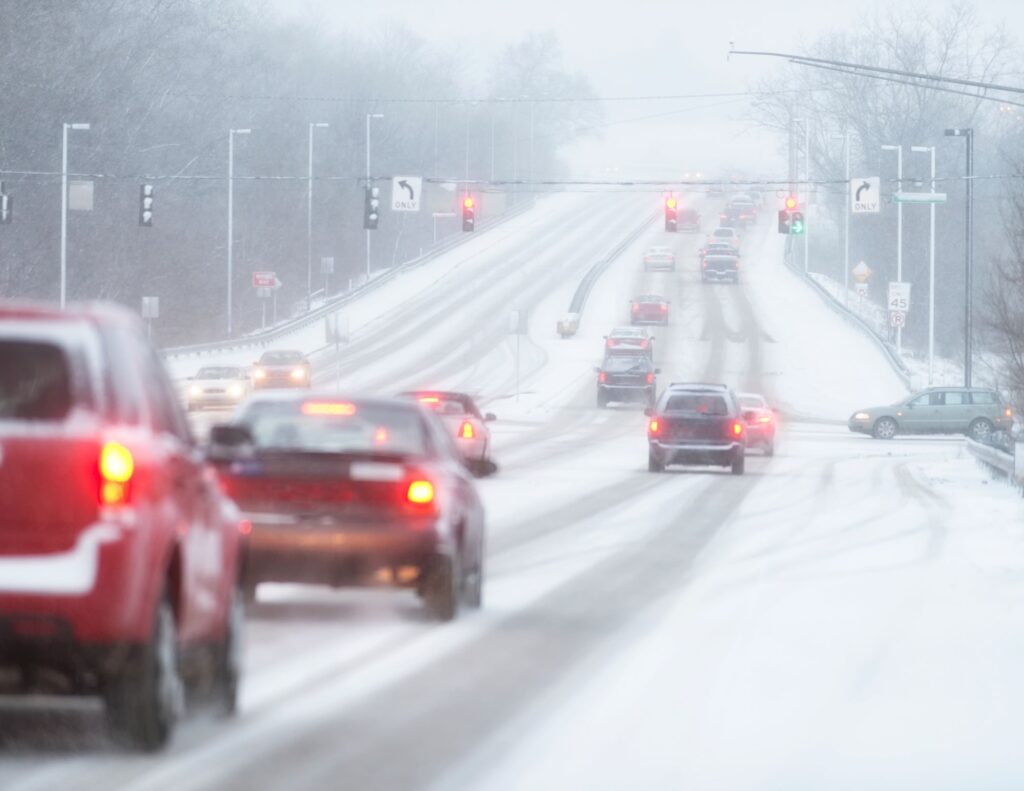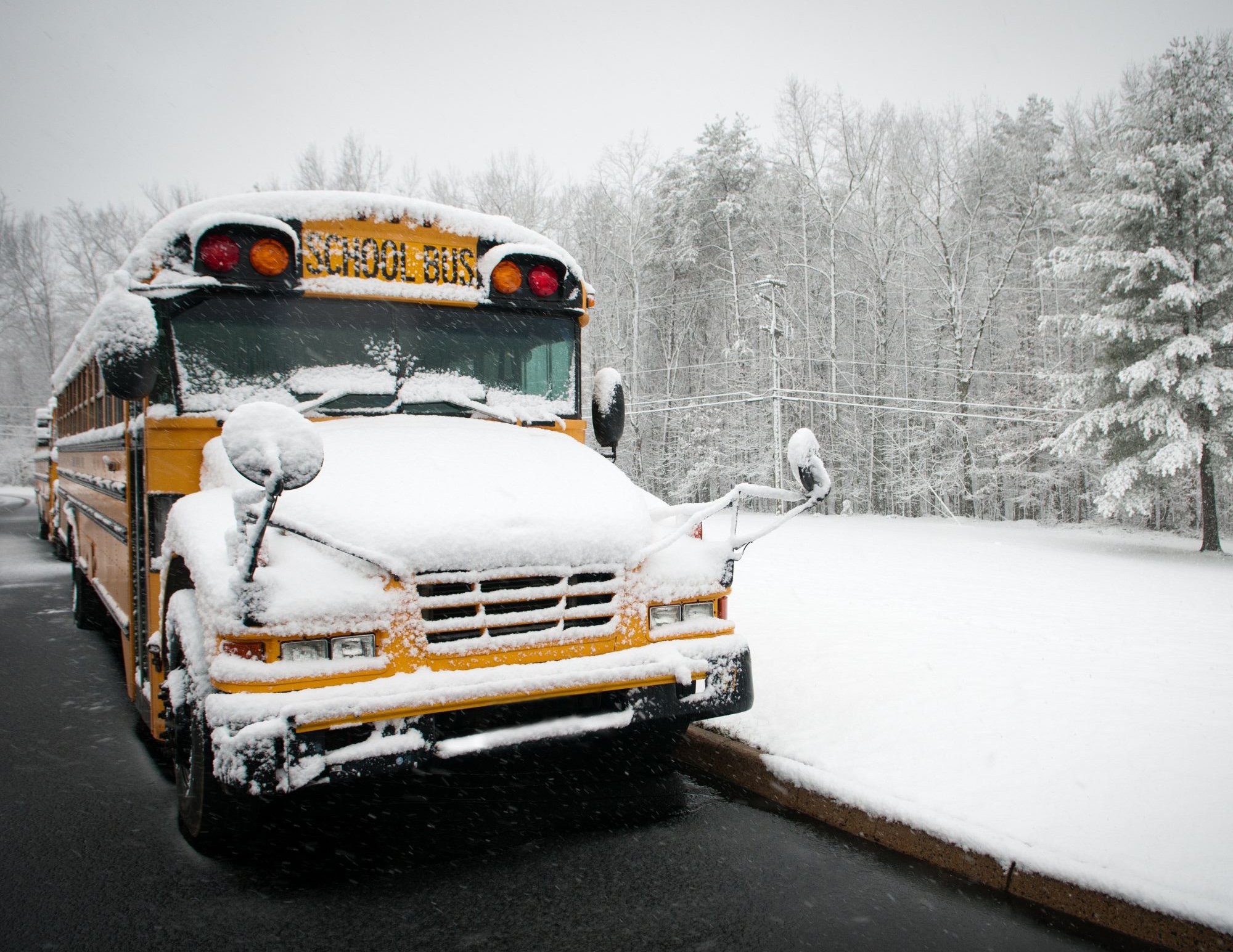As temperatures drop and winter storms become more frequent, schools and families need to prioritize safety during the colder months. January is Winter Safety Awareness Month, and the risks posed by icy roads, cold temperatures, and winter storms are significant in New Jersey. Whether you’re a student, a teacher, or a parent, there are steps you can take to ensure that everyone stays safe and healthy during the winter season.
 Winter Travel: Safety for Students and Staff
Winter Travel: Safety for Students and Staff
Students should wait for the bus in a safe, clear area away from traffic. They should be cautious of ice patches when boarding or exiting the bus. Parents can help by ensuring that children dress warmly, with hats, gloves, and scarves, since waiting in cold weather without proper clothing can increase the risk of frostbite¹. For school staff and parents who drive, it’s essential to prepare your vehicle for winter. This includes checking tire tread, keeping an emergency kit in the car, and allowing extra travel time to account for icy or snow-covered roads². Slow down, leave extra space between vehicles, and stay informed about road conditions before starting your journey¹.
Cold Weather Health Risks
Students, staff, and parents all need to be aware of the health risks that cold temperatures pose, especially when spending time outdoors for recess, physical education, or sports. To protect against cold temperatures, wear layers of clothing. This allows students to adjust their clothing if they get too warm inside the school building but stay protected when outside. A waterproof outer layer, such as a winter coat, is essential, along with hats, gloves, and scarves³. Frostbite typically affects fingers, toes, and ears, turning skin pale or bluish and making it feel cold and numb⁴. Hypothermia, on the other hand, can occur when body temperature drops below normal, leading to shivering, confusion, and fatigue³. Students and staff should seek warm shelter immediately if they notice any of these signs.

Indoor Safety: Heating and Fire Hazards
During the winter months, schools and homes rely on heating systems to stay warm, but these systems can also pose risks if not used properly. In New Jersey, heating-related fires are a significant concern, especially when portable heaters are used¹. Portable heaters should only be used in approved areas and never left unattended in school buildings. They should also be kept away from anything flammable, such as paper or curtains, and turned off when not in use⁵. Both homes and schools need working carbon monoxide detectors to prevent poisoning from faulty furnaces or improperly vented heaters. New Jersey law requires carbon monoxide detectors in all buildings, but it’s important to regularly check the batteries and ensure they are functioning properly⁵.
Snow Days: Staying Safe at Home
When schools close due to snow or ice, students may be tempted to enjoy outdoor activities like sledding or snowball fights. While these activities can be fun, they also come with risks, and parents and students need to practice safety. Sledding on icy hills can lead to injuries. Students should only sled in designated areas, away from roads and fences, and always wear helmets to protect against head injuries. It’s important to sled during daylight and avoid using homemade sleds that could break¹. During extreme cold weather, children can quickly develop frostbite or hypothermia. Parents should monitor how long kids are outside, ensure they’re dressed warmly, and encourage frequent breaks indoors to warm up³.
School Preparedness: What Parents and Students Should Know
New Jersey schools have protocols in place to deal with winter weather, including delayed openings and early dismissals. It’s important for parents and students to stay informed about these changes to avoid confusion or unsafe situations. Most New Jersey schools will notify families of closures or delays via automated calls, emails, or apps. Ensure your contact information is up-to-date with the school, and check the district website or local news stations for updates. Have a family emergency plan in place so students know what to do if school closes early or if they need to stay home. Discuss where they should go if parents are unavailable, and how they will stay warm and safe at home.
Winter safety is a shared responsibility between students, school staff, and parents. Whether it’s bundling up for the cold or navigating icy roads, being prepared can reduce the risks associated with winter weather in New Jersey. By following these safety tips and staying informed, everyone can enjoy the winter season while minimizing accidents and injuries.
References:
- New Jersey Office of Emergency Management. (n.d.). Winter Weather Hazards. https://www.nj.gov/njoem/plan-prepare/winter.shtml.
- New Jersey Office of Emergency Management. (n.d.). Safe Winter Driving. https://www.nj.gov/emergency/general/driving.pdf.
- Centers for Disease Control & Prevention. (2024, February 7). Preventing Hypothermia. Winter Weather. https://www.cdc.gov/winter-weather/prevention/index.html.
- Centers for Disease Control & Prevention. (2024, February 6). Preventing Frostbite. Winter Weather. https://www.cdc.gov/winter-weather/prevention/preventing-frostbite.html.
- Centers for Disease Control & Prevention. (2024, February 7). Safety Guidelines: During & After a Winter Storm. Winter Weather. https://www.cdc.gov/winter-weather/safety/stay-safe-during-after-a-winter-storm-safety.html.




